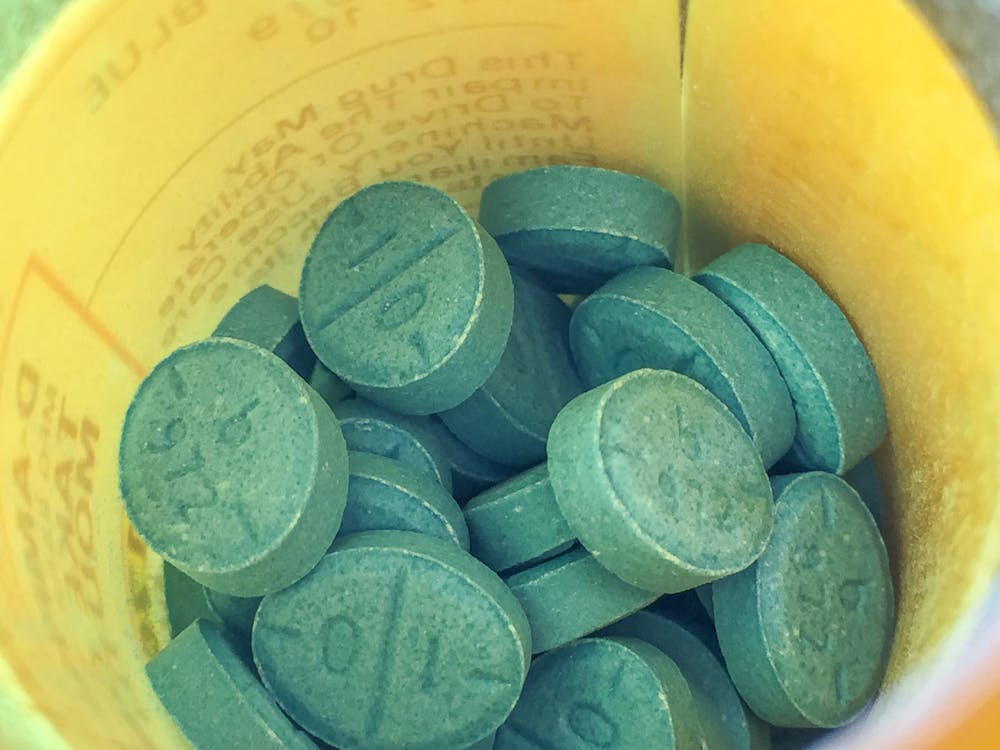The Food and Drug Administration (FDA) announced a nationwide shortage of Adderall, a medication for attention-deficit/ hyperactivity disorder (ADHD), in October 2022. Even now, the shortage persists, and the scarcity has even begun to affect the availability of alternatives to Adderall.
ADHD is a behavior disorder, and symptoms are categorized into issues of inattention, hyperactivity and impulsivity. Inattention manifests as difficulty with organization, procrastination and focusing on tasks. Examples of hyperactivity, especially in younger ADHD patients, are excessive movement and disturbing others. Impulsivity in ADHD includes behaviors such as difficulty taking turns in classrooms and reckless driving in adults.
Dr. Aditya Kumar Singh Pawar is a child and adolescent psychiatrist at the Kennedy Krieger Institute and an assistant professor in the Department of Psychiatry at the Hopkins School of Medicine.
In an interview with The News-Letter, Pawar explained how Adderall, a stimulant composed of mixed amphetamines, helps curb symptoms of ADHD. Neurons of ADHD patients produce less dopamine, but Adderall allows neurons to release more dopamine in a focused way, thus increasing the dopamine signals and allowing individuals to become more focused.
The Adderall shortage is due to a mismatch between the supply and demand for Adderall. There was a surge in ADHD diagnoses over the course of the COVID-19 pandemic, resulting in heightened demand for Adderall. Adults and students losing their structured environment at work or school could have made some of them more likely to recognize ADHD symptoms.
However, the FDA and Drug Enforcement Agency (DEA) have ceilings quotas on the quantities of medications that can be manufactured, due to the possibility of abuse and addiction, to ensure supply is equal to demand. The DEA calculates demand from historical data, which did not include updated changes in demand during the pandemic.
Pawar noted that the DEA has been reluctant to increase its quota because it is still determining whether there has been an actual increase in demand.
“If there is an increased demand, the DEA needs to increase its quota, but it has not done that. It needs to be aware that there are many people suffering from the shortage,” he said.
Student Disability Services (SDS) is a source of support and advocacy for Hopkins students with disabilities. For ADHD students, SDS provides accommodations, such as extended time and reduced distraction space for exams.
Terri Massie-Burrell, the senior director of SDS, mentioned alternatives to medications for those coping with ADHD in an email to The News-Letter.
“[Some] may use diet, exercise and effective habits, such as studying at the same time and in a reduced distraction location on a regular basis. SDS can work with students to explore additional accommodations and assistive technologies,” she said.
Pawar shared that real actions are needed to address this shortage instead of just debating how the problem arose initially. The normal school life of many students has been interrupted because of difficulty obtaining necessary medications to cope with ADHD.
“[The] medication shortage, in general, is not talked about as it should be [and] there are so many repercussions,” he said.





